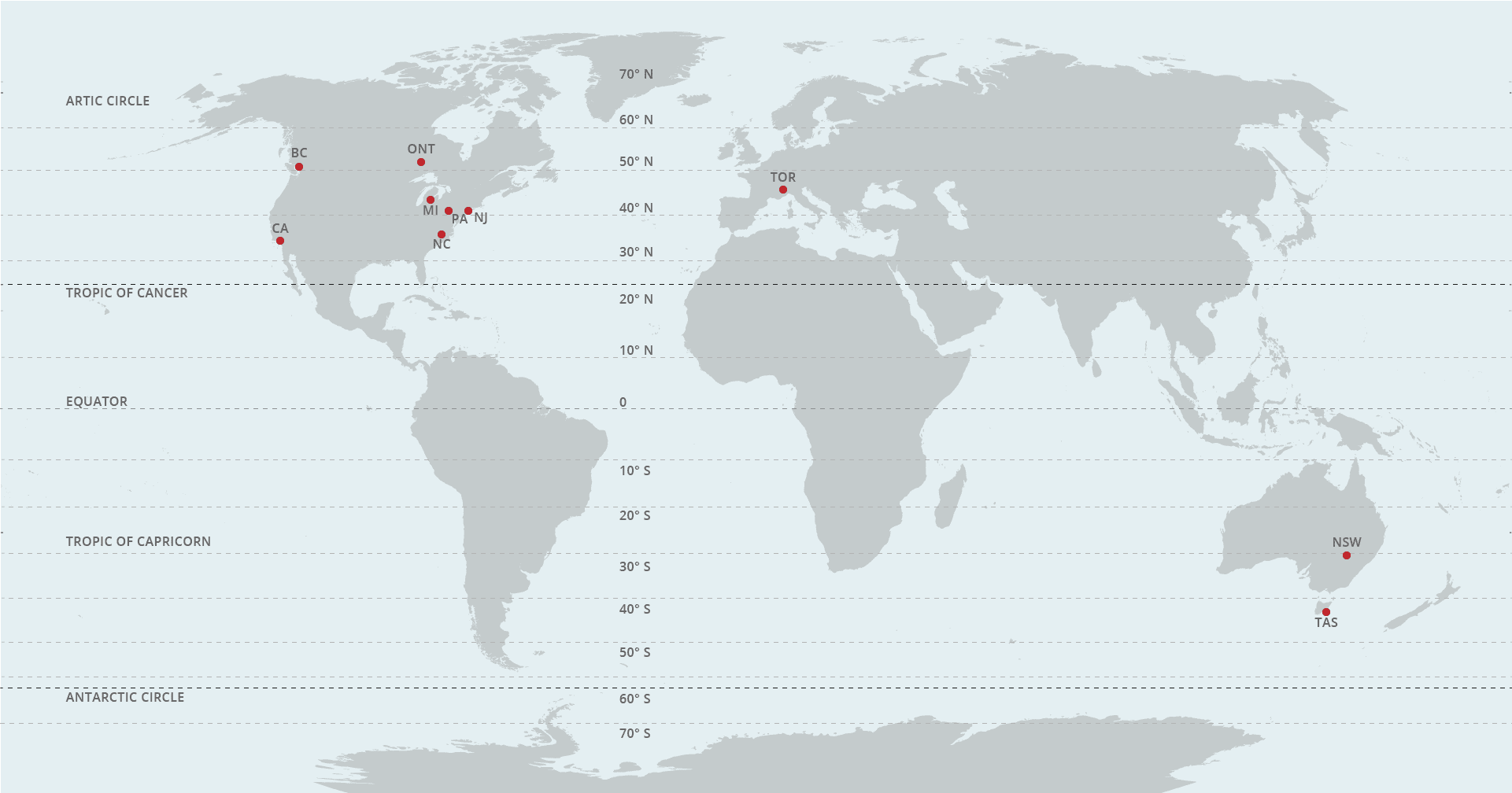
About
The Genes, Environment, and Melanoma ('GEM') Study
Melanoma is a rare but serious type of skin cancer. When caught early, it can often be treated successfully – but if left undetected, it can be life-threatening. Unfortunately, cases of melanoma aren’t decreasing around the world. While there are several known risk factors (age, fair skin, family history, others) and treatment has improved, it is crucial to identify additional risk factors to improve early detection and survival.
The Genes, Environment, and Melanoma or GEM Study is a large-scale population-based international research project aimed at understanding the genetic, lifestyle, and environmental factors that contribute to melanoma development.
The study is conducted across North America, Europe, and Australia and include the following Study Centers (see world map): New South Wales (NSW), Tasmania (TAS), British Columbia (BC), Ontario (ONT), Torino (TOR), California (CA), Michigan (MI), New York (NY) with participants from New Jersey, and North Carolina (NC).
Over 3,500 melanoma patients generously provided detailed information on lifestyle, family and personal history, and samples to help us understand how inherited traits (genetics) and/or tumor characteristics interact with environmental factors (sun exposure) to affect melanoma risk and survival. Information was also collected from medical charts, and all the tumors were reviewed by our pathologists experts in skin melanoma.
Because some gene characteristics of relevance are uncommon, to increase the chances of finding these, the study uses a particular case-control design in which ‘cases’ or patients who developed multiple primary skin melanoma are compared to ‘controls’ or patients who developed just one.
To date, the GEM study investigators provided insights into the role of inherited variations in specific genes and melanoma susceptibility, alone or by interacting with sun exposure. We have also examined skin tissue characteristics, patterns of damage produced by ultraviolet radiation, and infiltration of immune cells in the tumors and how this may affect survival.
The work isn’t over - we continue analyzing data and samples to uncover more clues about how melanoma develops and progresses. Ultimately, the goal is to reduce the number of new cases, improve treatments, and help people affected with melanoma live longer, healthier lives.

Founders
Marianne Berwick & Colin Begg
Memorial Sloan Kettering Cancer Center, NY, USA - Coordinating Center
Bruce Armstrong & Anne Kricker
The University of Sydney and the Cancer Council New South Wales, Sydney, Australia
Terence Dwyer
Menzies Centre for Population Health Research, University of Tasmania, Hobart, Australia
Richard Gallagher
British Columbia Cancer Agency, Vancouver, Canada
Loraine Marrett
Cancer Care Ontario, Toronto, Canada
Roberto Zanetti
Centro per la Prevenzione Oncologia Torino, Piemonte, Italy
Hoda Anton-Culver
University of California, Irvine, USA
Stephen Gruber
University of Michigan, Ann Arbor, Michigan, USA
Judith Klotz & Homer Wilcox
New Jersey Department of Health and Senior Services, Trenton, NJ, USA
Robert Millikan
University of North Carolina at Chapel Hill, NC, USA
Timothy Rebbeck
University of Pennsylvania, Philadelphia, PA, USA
Contact Us
Contact the steering committee for potential collaborative opportunities
GEMstudy@mskcc.org